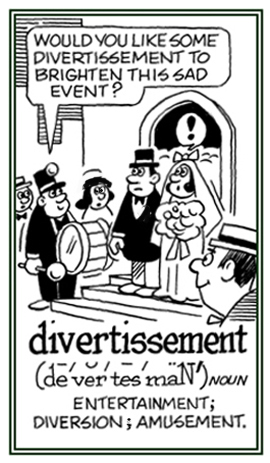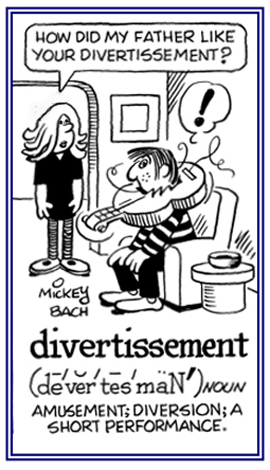diversi-, divers-, divert-
(Latin: different, separate, opposite; literally, turned away [from each other])
Directly related to the large vers-, vert- family of words.
A diverticulum refers to a small sac-like structure that sometimes forms in the walls of the intestines where diverticula can trap particles of food (especially small seeds and undigested grains) and become very inflamed and painful (this condition is called diverticulitis).
As a person ages, pressure within the large intestine (colon) causes pockets of tissue (sacs) that push out from the colon walls. The plural form is diverticula. Diverticula can occur throughout the colon but are most common near the end of the left side of the colon, the sigmoid colon.
In human anatomy, the sigmoid colon is the lower colon (the lower portion of the large bowel).
The word sigmoid came from the Greek letter "sigma" which is shaped like a "C". It also means curved in two directions like the letter "S". A sigmoid curve is an S-shaped curve.
The sigmoid flexure of the colon is the point where it makes the turn from transverse to descending colon.
Sigmoidoscopy is a procedure in which a viewing tube (a sigmoidoscope) is inserted up into the sigmoid colon. The term rectosigmoid refers to both the rectum and the sigmoid colon above it.
2. Inflammation of a diverticulum, especially inflammation related to colonic diverticula, which may undergo perforation with abscess formation; sometimes this is called left-sided or L-sided appendicitis.
2. A plastic operation to obliterate a diverticulum.
2. Presence of a number of diverticula of the intestine, common in middle age; the lesions are "acquired pulsion diverticula".
2. A sac or pouch in the walls of a canal or organ.
3. A pouch or sac opening from a tubular or saccular organ; such as, the gut or bladder.


Go to this Word A Day Revisited Index
so you can see more of Mickey Bach's cartoons.
Inter-related cross references involving word units meaning "bend, curve, turn": diverticul-; flect-, flex-; gyro-; meand-; -plex; streph-; stroph-; tors-; tropo-; verg-; vers-; volv-.

